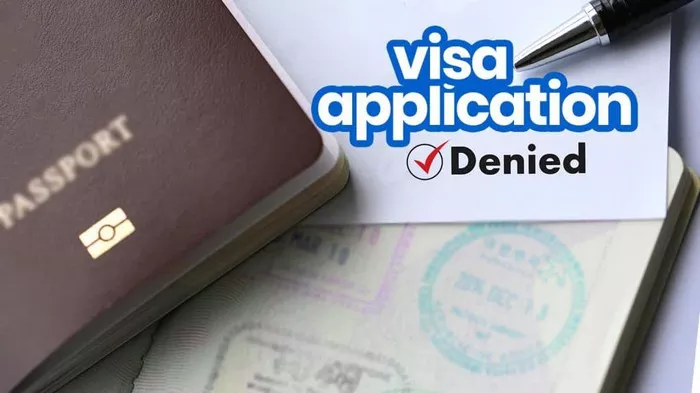Obtaining a student visa can be a pivotal step towards achieving one’s educational aspirations abroad. However, the journey towards acquiring this essential document is not always straightforward. Many aspiring international students encounter the disheartening reality of visa rejection, which can significantly disrupt their academic plans and dreams. In this article, we delve into the intricacies of student visa rejections, exploring common reasons behind them and providing insights into how applicants can navigate these challenges effectively.
What is a Student Visa?
A student visa is a legal document issued by a host country that permits individuals from foreign nations to reside within its borders for the purpose of pursuing education. This visa category typically comes with specific conditions, including limitations on employment, duration of stay, and requirements for maintaining academic enrollment.
Understanding Student Visa Rejections
While the prospect of studying abroad is exciting, it is essential for aspiring international students to recognize the potential hurdles they may encounter during the visa application process. Despite meeting academic requirements and securing admission to esteemed educational institutions, some applicants find their visa applications rejected. Understanding the underlying reasons for these rejections is crucial for preemptive measures and successful navigation of the visa application process.
Common Reasons for Rejection
1. Financial Concerns:
Insufficient financial resources to cover tuition fees, living expenses, and other associated costs is a prevalent reason for visa rejection. Host countries want to ensure that international students can support themselves financially throughout their studies without resorting to unauthorized employment or public assistance.
2. Lack of Home Country Ties:
Visa officers assess an applicant’s ties to their home country to gauge the likelihood of their return upon completing their studies. Lack of familial, financial, or professional ties to the home country may raise concerns regarding the applicant’s intention to immigrate permanently, leading to visa rejection.
3. Academic Performance Issues:
Poor academic performance or a lack of academic preparedness for the chosen program can raise doubts about an applicant’s ability to succeed academically abroad. Visa officers may reject applications if they perceive the applicant as inadequately equipped to handle the academic rigor of their intended course of study.
4. Incomplete or Inaccurate Applications:
Incomplete or inaccurately filled visa applications are often rejected outright, as they demonstrate a lack of attention to detail and adherence to visa requirements. It is crucial for applicants to meticulously review and double-check all application materials before submission to avoid unnecessary setbacks.
5. Choice of Program and University:
The choice of program and institution can significantly influence visa approval outcomes. Visa officers may scrutinize applications more closely if they perceive discrepancies between the applicant’s academic background, career goals, and the chosen program of study. Additionally, opting for institutions with questionable reputations or accreditation status can raise red flags during the visa assessment process.
Visa Interview Tips
For applicants required to attend a visa interview as part of the application process, thorough preparation is key to success. Some essential tips for acing the visa interview include:
Familiarize yourself with the visa requirements and be prepared to provide thorough documentation supporting your application.
Articulate your academic and career aspirations clearly, demonstrating a genuine passion for your chosen field of study.
Be honest and forthcoming in your responses to the interviewer’s questions, avoiding exaggeration or misrepresentation.
Dress appropriately and maintain a professional demeanor throughout the interview process.
Practice mock interviews with peers or mentors to gain confidence and refine your communication skills.
Overcoming a Student Visa Rejection
Experiencing a visa rejection can be disheartening, but it is essential for applicants to approach the situation with resilience and determination. Here are some steps to consider when faced with a student visa rejection:
1. Analyzing the Rejection Reasons:
Thoroughly review the rejection letter provided by the immigration authorities to identify the specific reasons for the visa refusal. Understanding the grounds on which your application was rejected is crucial for devising a strategic plan of action.
2. Reapplying for the Student Visa:
If the reasons for rejection are addressable, applicants may choose to rectify deficiencies in their application and reapply for the student visa. This may involve providing additional documentation, bolstering financial resources, or addressing academic performance concerns.
3. Appealing the Decision:
In some cases, applicants may have the option to appeal the visa rejection decision through a formal appeals process. This typically involves submitting a written appeal detailing the grounds for reconsideration and providing compelling evidence to support your case.
4. Exploring Alternative Study Options:
In instances where reapplication or appeal is not feasible, exploring alternative study options can provide a viable pathway to achieving academic goals abroad. This may involve considering alternate programs or institutions, exploring study-abroad programs, or pursuing online education opportunities.
Conclusion
In conclusion, the journey towards obtaining a student visa is replete with challenges, and rejection is a possibility that many applicants may encounter. However, with thorough preparation, strategic planning, and resilience in the face of setbacks, aspiring international students can increase their chances of securing the necessary documentation to pursue their educational aspirations abroad. By understanding the common reasons for visa rejection and taking proactive measures to address potential concerns, applicants can navigate the visa application process with confidence and determination.


